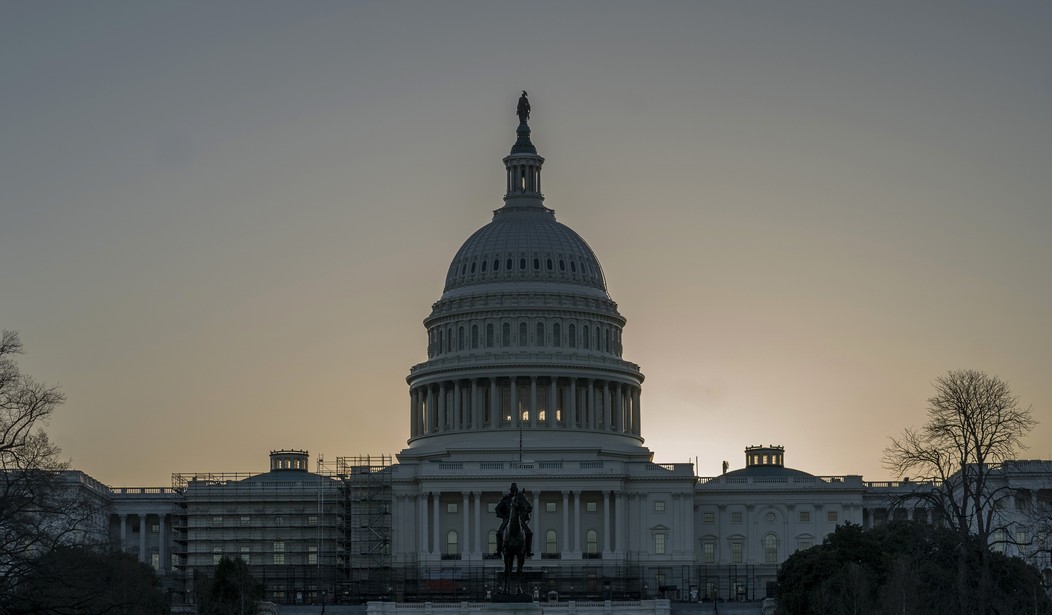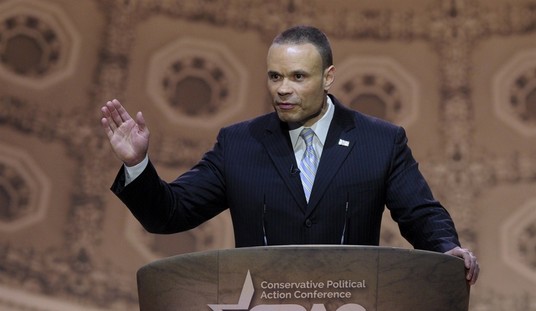When Sean Trende of Real Clear Politics speaks -- especially this close to an election -- I listen intently. He's one of the most level-headed and data-driven political analysts around, and he's out with a new piece explaining in detail why the GOP remains likely to win control of the House of Representatives in November's midterm elections. A number of the points he makes are well-known, and we've repeated them in this space any number of times. But he also gets into historical trends in a granular way, which is worth your time, if you're a political animal. Some of his big takeaways:
Democrats maintaining control of the House would be so unusual, given what we think about how elections work, that we really should have a very strong prior against it. I'd guess R gains in the 6-30 range or so, with a bias toward the higher end.https://t.co/kKJmAWWSki
— Sean T at RCP (@SeanTrende) September 29, 2022
Economic growth and inflation remain problems in most voters’ minds. The president’s job approval is not in the 60s, it is in the low 40s. To be sure, this time could be different. But we should acknowledge that this has to be the argument: Things are fundamentally different than in elections we’ve had in the past 140 years. It could happen! ... Things sometimes are different – things with even a 99.9% chance of not happening happen one time out of 1,000 – but overall, “this time it’s different” has a poor track record...To make this clearer, in a neutral year, where Republicans won all the districts where Joe Biden received 52% of the vote or less and lost all of the districts where he did better, they would win 224 seats. As an aside, if they won the seats where he received 51% of the vote or less, they’d narrowly claim control of the House, with 219 seats. And if Republicans did a bit better than a purely neutral environment, they’d receive 232 seats... It’s plausible for Democrats to hold the House, but it really would require some reordering of our understanding of what makes elections work. Even elections that look extreme or unusual, like 2002 or 1998, weren’t unusual; the presidents were just popular, much as Joe Biden is not.
Recommended
Trende thinks that Republicans could underperform and barely take the majority, or they could blow it out and race toward 245 seats or more. His overall expectation, six weeks out, more or less splits the difference, which is roughly where I am on this. I'd just note that over the last five decades or so, the 'out' party gains an average of two dozen seats in a president's first midterm election cycle. That number jumps to 37 if the president's approval rating is below 50 percent, which Biden's most certainly is. On the other hand, House Republicans made unexpected double-digit gains in 2020, so their 'floor' starts higher than many House minorities, already close to on-par with the majority. In short, because so many of the 'low hanging fruit' seats are already in GOP hands, they may not put up gaudy numbers (like anything close to this), in terms of the number of seats gained. What will be interesting is to see the total number of seats they control after November 8th.
As for the Senate, it's a pure jump ball. I recently suggested that Wisconsin is looking safer for Republicans and Sen. Ron Johnson, and new polling reinforces that belief. A notoriously unreliable Democratic pollster known for its home cooking surveyed 'voters' and only managed to produce a tie. A more reputable bipartisan outfit finds Johnson ahead, and cracking above the key 50 percent mark:
?? WISCONSIN POLL By Fabrizio Ward (R) & Impact Research (D)
— InteractivePolls (@IAPolls2022) September 29, 2022
SENATE
(R) Ron Johnson 51% (+5)
(D) Mandela Barnes 46%
GOVERNOR
(R) Tim Michels 50% (+3)
(D) Tony Evers 47%
GENERIC BALLOT
Republicans 50% (+5)
Democrats 45%
1,399 LV | 09/18/25 | R31/D30/I39https://t.co/LCs9AVMzni pic.twitter.com/azJ5Q4YljP
That would be a monster hold for the GOP, assuming they don't blow seats in places like OH/NC/FL. If they somehow manage to keep control of seats in both Wisconsin and Pennsylvania, they'd be pretty strong favorites to take over the majority. The Keystone State is looking much tougher than Wisconsin, but the polling in that race has moved from Dr. Oz getting blown out, to Oz pulling to within striking distance. This Republican operative is right about momentum and trajectory:
Pollsters that have done multiple surveys in PA recently:
— Logan Dobson (@LoganDobson) September 29, 2022
FOX: Fetterman +11 --> Fetterman +4
F&M: Fetterman +13 --> Fetterman +4
Trafalgar: Fetterman +4 --> Fetterman +2
Fetterman still with a polling lead but clear where the momentum is
Do Pennsylvanians really want to send this person to the United States Senate on their behalf? More and more of them seem less sure of that than ever. Still, the polls (key caveat here) point to a Fetterman win if the election were held tomorrow. Fortunately for Oz, he's got time to keep building. The GOP Senate nominee is still struggling in Arizona, and it looks like the party could well be in the process of surrendering an eminently winnable seat in New Hampshire, where an unpopular incumbent has been gifted a fringe-sounding first-time candidate of an opponent. Nevada continues to appear relatively promising for Republicans, who've nominated a talented candidate in that race. Which means that -- once again -- the whole thing might come down to Georgia. Herschel Walker has bumped out to a small lead in a number of recent polls, but the latest Fox News survey shows Raphael Warnock up by five, though still well below 50 percent. It's coming down to the wire in the Peach State, with a lot on the line. I'll leave you with this:
Revised GDP data shows US economy shrank in the second quarter, solidifying two straight quarters of contraction https://t.co/5uupWH3WYB
— CNN Breaking News (@cnnbrk) September 29, 2022
Say, is there a word that traditionally describes such a phenomenon?

























Join the conversation as a VIP Member